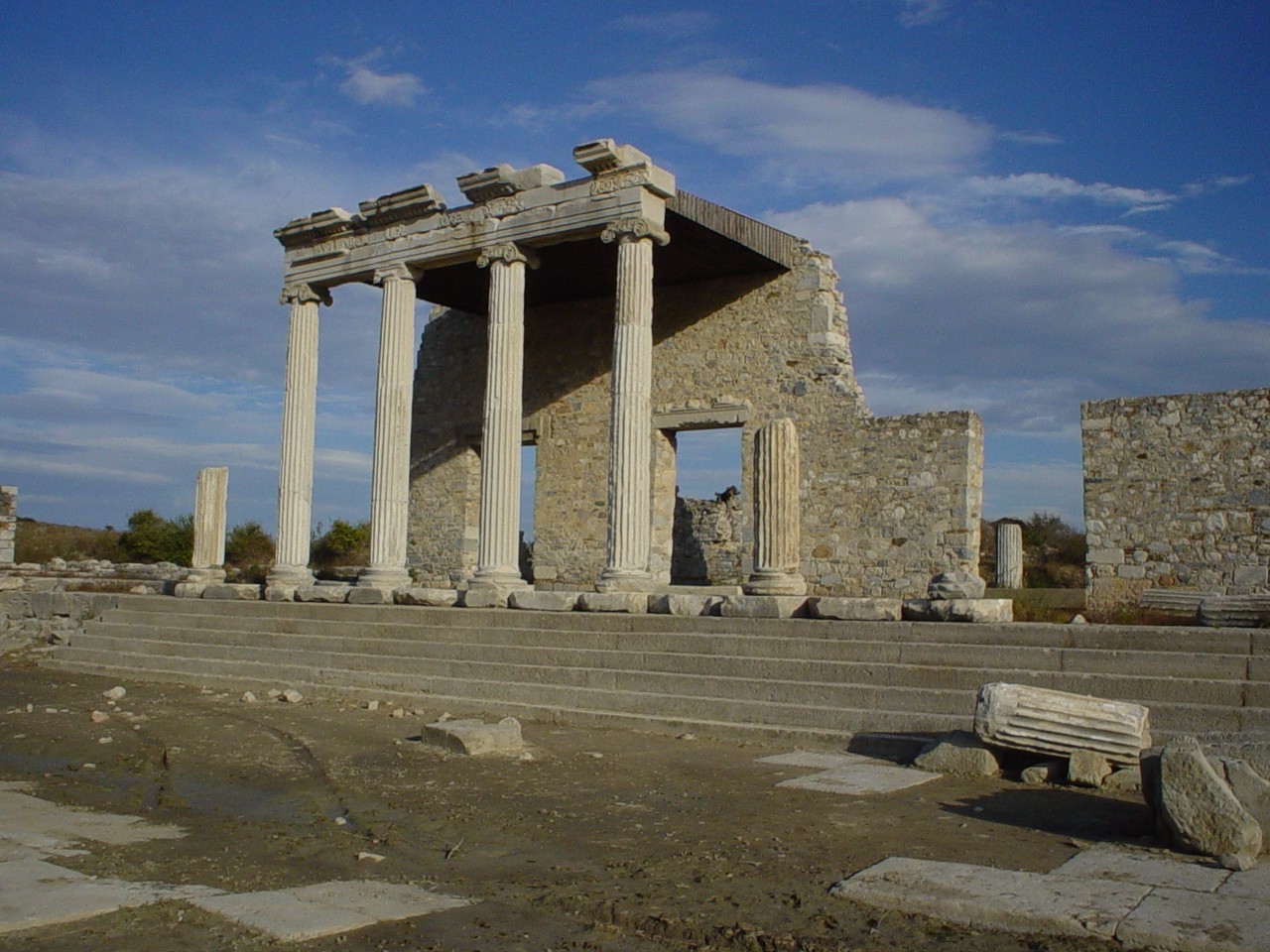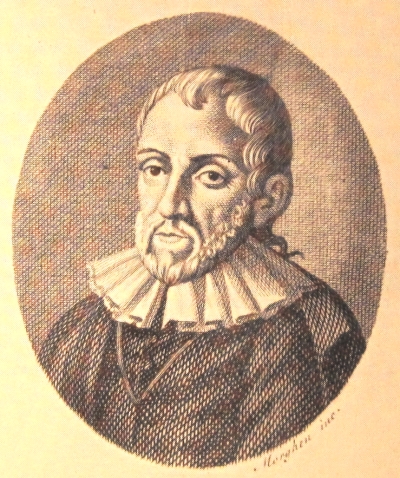|
Hylozoism
Hylozoism is the philosophical doctrine according to which all matter is alive or animated, either in itself or as participating in the action of a superior principle, usually the world-soul (''anima mundi''). The theory holds that matter is unified with life or spiritual activity. The word is a 17th-century term formed from the Greek words ὕλη (''hyle'': "wood, matter") and ζωή (''zoē'': "life"), which was coined by the English Platonist philosopher Ralph Cudworth in 1678. Hylozoism in Ancient Greek Philosophy Hylozoism in Western philosophy can be traced back to ancient Greece. The Milesian philosophers Thales, Anaximander, and Anaximenes, can be described as hylozoists. Philosopher David Skrbina states that hylozoism was implicit in early Greek philosophy, and was not a doctrine that was typically challenged. "For the Milesians, matter (''hyle'') possessed life (''zoe'') as an essential quality. Something like hylozoism was simply accepted as a brute cond ... [...More Info...] [...Related Items...] OR: [Wikipedia] [Google] [Baidu] |
Thales
Thales of Miletus ( ; ; ) was an Ancient Greek philosophy, Ancient Greek Pre-Socratic philosophy, pre-Socratic Philosophy, philosopher from Miletus in Ionia, Asia Minor. Thales was one of the Seven Sages of Greece, Seven Sages, founding figures of Ancient Greece. Beginning in eighteenth-century historiography, many came to regard him as the first philosopher in the Greek philosophy, Greek tradition, breaking from the prior use of mythology to explain the world and instead using natural philosophy. He is thus otherwise referred to as the first to have engaged in mathematics, History of science#Pre-socratics, science, and deductive reasoning. Thales's view that all of nature is based on the existence of a Arche, single ultimate substance, which he Theory, theorized to be Water (classical element), water, was widely influential among the philosophers of his time. Thales thought the Earth floated on water. In mathematics, Thales is the namesake of Thales's theorem, and the interc ... [...More Info...] [...Related Items...] OR: [Wikipedia] [Google] [Baidu] |
Pantheism
Pantheism can refer to a number of philosophical and religious beliefs, such as the belief that the universe is God, or panentheism, the belief in a non-corporeal divine intelligence or God out of which the universe arisesAnn Thomson; Bodies of Thought: Science, Religion, and the Soul in the Early Enlightenment, 2008, page 54. as opposed to the corporeal gods of religion such as Yahweh. The former idea came from Church theologians who, in attacking the latter form of pantheism, described pantheism as the belief that God is the material universe itself.Worman, J. H., "Pantheism", in ''Cyclopædia of Biblical, Theological, and Ecclesiastical Literature, Volume 1'', John McClintock, James Strong (Eds), Harper & Brothers, 1896, pp. 616–624. Under some conceptions of pantheism, the universe is thought to be an immanent deity, still expanding and creating, which has existed since the beginning of time. Pantheism can include the belief that everything constitutes a unity and that t ... [...More Info...] [...Related Items...] OR: [Wikipedia] [Google] [Baidu] |
Bernardino Telesio
Bernardino Telesio (; 7 November 1509 – 2 October 1588) was an Italian philosopher and natural scientist. While his natural theories were later disproven, his emphasis on observation made him the "first of the moderns" who eventually developed the scientific method. Biography Telesio was born of noble parentage in Cosenza, a city in Calabria, Southern Italy (Kingdom of Naples). He was educated in Milan by his uncle, Antonio, himself a scholar and a poet of eminence, and afterwards in Rome and Padua Padua ( ) is a city and ''comune'' (municipality) in Veneto, northern Italy, and the capital of the province of Padua. The city lies on the banks of the river Bacchiglione, west of Venice and southeast of Vicenza, and has a population of 20 .... His studies included a wide range of subjects, classics, science and philosophy, which constituted the curriculum of the Renaissance savants. Thus equipped, he began his attack upon the medieval Aristotelianism which then flouri ... [...More Info...] [...Related Items...] OR: [Wikipedia] [Google] [Baidu] |
Stoics
Stoicism is a school of Hellenistic philosophy that flourished in ancient Greece and Rome. The Stoics believed that the universe operated according to reason, ''i.e.'' by a God which is immersed in nature itself. Of all the schools of ancient philosophy, Stoicism made the greatest claim to being utterly systematic. The Stoics provided a unified account of the world, constructed from ideals of logic, monistic physics, and naturalistic ethics. These three ideals constitute virtue which is necessary for 'living a well reasoned life', seeing as they are all parts of a logos, or philosophical discourse, which includes the mind's rational dialogue with itself. Stoicism was founded in the ancient Agora of Athens by Zeno of Citium around 300 BC, and flourished throughout the Greco-Roman world until the 3rd century AD, and among its adherents was Roman Emperor Marcus Aurelius. Along with Aristotelian term logic, the system of propositional logic developed by the Stoics was one of th ... [...More Info...] [...Related Items...] OR: [Wikipedia] [Google] [Baidu] |
Protestantism
Protestantism is a branch of Christianity that emphasizes Justification (theology), justification of sinners Sola fide, through faith alone, the teaching that Salvation in Christianity, salvation comes by unmerited Grace in Christianity, divine grace, the priesthood of all believers, and the Bible as the sole infallible source of authority for Christian faith and practice. The five solae, five ''solae'' summarize the basic theological beliefs of mainstream Protestantism. Protestants follow the theological tenets of the Reformation, Protestant Reformation, a movement that began in the 16th century with the goal of reforming the Catholic Church from perceived Criticism of the Catholic Church, errors, abuses, and discrepancies. The Reformation began in the Holy Roman Empire in 1517, when Martin Luther published his ''Ninety-five Theses'' as a reaction against abuses in the sale of indulgences by the Catholic Church, which purported to offer the remission of the Purgatory, temporal ... [...More Info...] [...Related Items...] OR: [Wikipedia] [Google] [Baidu] |
Heresy In Christianity
Heresy in Christianity denotes the formal denial or doubt of a core doctrine of the Christian faith as defined by one or more of the Church (congregation), Christian churches. The study of heresy requires an understanding of the development of orthodoxy and the role of creeds in the definition of orthodox beliefs, since heresy is always defined in relation to orthodoxy. Orthodoxy has been in the process of self-definition for centuries, defining itself in terms of its faith by clarifying beliefs in opposition to people or doctrines that are perceived as incorrect. Etymology The word ''heresy'' comes from ''haeresis'', a Latin transliteration of the Greek word αἵρεσις originally meaning choosing, choice, course of action, or in an extended sense a sect or school of thought, which by the first century came to denote warring factions and the party spirit. The word appears in the New Testament, usually translated as ''sect'', and was appropriated by the Church to mean a se ... [...More Info...] [...Related Items...] OR: [Wikipedia] [Google] [Baidu] |
Catholic Church
The Catholic Church (), also known as the Roman Catholic Church, is the List of Christian denominations by number of members, largest Christian church, with 1.27 to 1.41 billion baptized Catholics Catholic Church by country, worldwide as of 2025. It is among the world's oldest and largest international institutions and has played a prominent role in the history and development of Western civilization.Gerald O'Collins, O'Collins, p. v (preface). The church consists of 24 Catholic particular churches and liturgical rites#Churches, ''sui iuris'' (autonomous) churches, including the Latin Church and 23 Eastern Catholic Churches, which comprise almost 3,500 dioceses and Eparchy, eparchies List of Catholic dioceses (structured view), around the world, each overseen by one or more Bishops in the Catholic Church, bishops. The pope, who is the bishop of Rome, is the Papal supremacy, chief pastor of the church. The core beliefs of Catholicism are found in the Nicene Creed. The ... [...More Info...] [...Related Items...] OR: [Wikipedia] [Google] [Baidu] |
Excommunication In The Catholic Church
In the canon law of the Catholic Church, excommunication (Lat. ''ex'', "out of", and ''communio'' or ''communicatio'', "communion"; literally meaning "exclusion from communion") is a form of censure. In the formal sense of the term, excommunication includes being barred not only from the sacraments but also from the fellowship of Christian baptism. The principal and severest censure, excommunication presupposes guilt; and being the most serious penalty that the Catholic Church can inflict, it supposes a grave offense. The excommunicated person is considered by Catholic ecclesiastical authority as an exile from the Church, for a time at least. Excommunication is intended to invite the person to change behaviour or attitude, repent, and return to full communion. It is not an "expiatory penalty" designed to make satisfaction for the wrong done, much less a "vindictive penalty" designed solely to punish. Excommunication, which is the gravest penalty of all, is always "medicinal" ... [...More Info...] [...Related Items...] OR: [Wikipedia] [Google] [Baidu] |
God In Christianity
In Christianity, God is the God and eternity, eternal, supreme being who Creator god, created and God the Sustainer, preserves all things. Christians believe in a Monotheism, monotheistic conception of God, which is both Transcendence (religion), transcendent (wholly independent of, and removed from, the material universe) and Immanence, immanent (involved in the material universe). Christians believe in a singular God that exists in a Trinity, which consists of three Persons: God the Father, God the Son, and God the Holy Spirit. Christian teachings on the transcendence, immanence, and involvement of God in the world and Love of God in Christianity, his love for humanity exclude the belief that God is of the same substance as the created universe (rejection of pantheism) but accept that God the Son assumed Hypostatic union, hypostatically united human nature, thus becoming man in a unique event known as "the Incarnation (Christianity), Incarnation". Early Christianity, Early Ch ... [...More Info...] [...Related Items...] OR: [Wikipedia] [Google] [Baidu] |
Christianity
Christianity is an Abrahamic monotheistic religion, which states that Jesus in Christianity, Jesus is the Son of God (Christianity), Son of God and Resurrection of Jesus, rose from the dead after his Crucifixion of Jesus, crucifixion, whose coming as the Messiah#Christianity, messiah (Christ (title), Christ) was Old Testament messianic prophecies quoted in the New Testament, prophesied in the Old Testament and chronicled in the New Testament. It is the Major religious groups, world's largest and most widespread religion with over 2.3 billion followers, comprising around 28.8% of the world population. Its adherents, known as Christians, are estimated to make up a majority of the population in Christianity by country, 157 countries and territories. Christianity remains Christian culture, culturally diverse in its Western Christianity, Western and Eastern Christianity, Eastern branches, and doctrinally diverse concerning Justification (theology), justification and the natur ... [...More Info...] [...Related Items...] OR: [Wikipedia] [Google] [Baidu] |
Giordano Bruno
Giordano Bruno ( , ; ; born Filippo Bruno; January or February 1548 – 17 February 1600) was an Italian philosopher, poet, alchemist, astrologer, cosmological theorist, and esotericist. He is known for his cosmological theories, which conceptually extended to include the then-novel Copernican model. He practiced Hermeticism and gave a mystical stance to exploring the universe. He proposed that the stars were distant suns surrounded by their own planets (exoplanets), and he raised the possibility that these planets might foster life of their own, a cosmological position known as cosmic pluralism. He also insisted that the universe is infinite and could have no center. Bruno was tried for heresy by the Roman Inquisition on charges of denial of several core Catholic doctrines, including eternal damnation, the Trinity, the divinity of Christ, the virginity of Mary, and transubstantiation. Bruno's pantheism was not taken lightly by the church, nor was his teaching of met ... [...More Info...] [...Related Items...] OR: [Wikipedia] [Google] [Baidu] |










